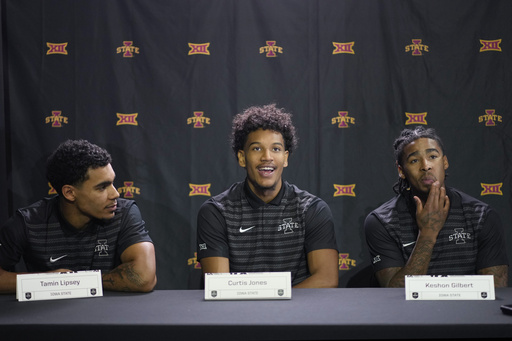
KANSAS CITY, Mo. — In the realm of men’s Division I basketball, only six coaches have the experience of lifting a national championship trophy. Among them, two are prominent figures in the Big 12 Conference: Bill Self from Kansas and Scott Drew of Baylor. Their perspectives are significant, especially following the recent retirement of Tony Bennett of Virginia, who stepped back just before the new season began.
Drew, who clinched his national championship in the COVID-19-affected NCAA Tournament in 2021 against Gonzaga, noted the extensive changes the sport has undergone. “In any profession, there’s always going to be change. We’ve just had an enormous amount in the last couple of years,” Drew stated. He highlighted the human tendency to prefer certainty and predictability in their jobs, emphasizing that the ongoing transitions in college basketball might require time for stabilization. “You hate losing good coaches in the process,” Drew added.
The relationship between Drew and Bennett spans decades, starting before either coach began their coaching journeys, which followed in the footsteps of their fathers. Drew’s father, Homer, coached at Valparaiso during the late 1980s and ’90s, while Bennett played under his father, Dick, at Green Bay. The evolution of college basketball since those days has been nothing short of dramatic.
The wave of conference realignments has led teams to traverse various time zones for matches, often multiple times a week. The implementation of the transfer portal has effectively transitioned coaches into roles akin to general managers, requiring them to re-recruit their players and frequently reinvigorate their squads with new transfers and freshmen. Additionally, the emergence of name, image, and likeness (NIL) deals has transformed once-collegiate athletes into wealthy individuals overnight, shifting recruiting dynamics to resemble professional sports’ free agency.
Last week, Bennett expressed his concerns about the current state of college athletics after announcing his retirement, stating, “The game and college athletics is not in a healthy spot. There needs to be change. I think I was equipped to do the job here the old way. That’s who I am and that’s how it was.”
Similarly, Jay Wright, who guided Villanova to two national championships, retired two years ago, attributing his departure partially to burnout amid the turbulent changes within college athletics. His retirement followed closely after being inducted into the Naismith Memorial Basketball Hall of Fame, a year prior.
Self expressed that while he acknowledges the sentiments driving other coaches’ decisions, he harbors a different outlook. “I do feel like it’s a very uncertain world we’re living in right now from a college athletics standpoint, but I do think it will balance out,” he remarked. Although uncertain of the specific path forward, he is optimistic that in a few years, the landscape of college basketball will stabilize.
On the other side of the spectrum, several coaches view the dynamic shifts within college athletics as a chance to innovate. Jerome Tang of Kansas State articulated that adaptation is essential in this evolving environment. “All these changes, we’re all facing it, so you adapt or you get left (behind). For me, it’s a challenge every day,” Tang shared. In his first season, the Wildcats made it to the Elite Eight but faced challenges the following year that led to missing out on postseason play. Unlike in previous times, Tang leveraged the transfer portal and NIL opportunities to quickly revamp his team’s composition.
“I don’t get caught up in what is wrong,” Tang noted, “but focus on what is right and take advantage of it.”
